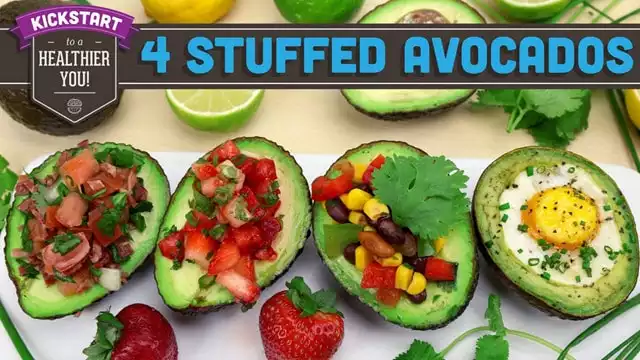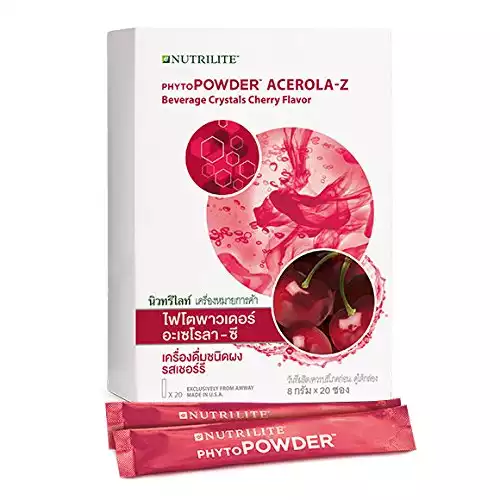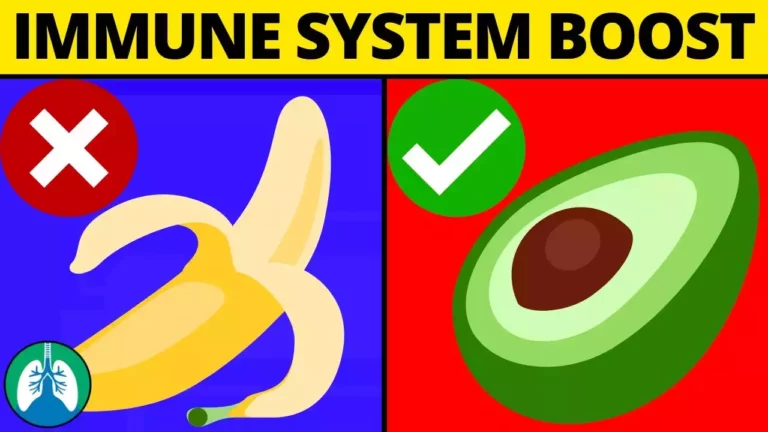6 Benefits of the Wonderful Fat from Avocados
This article discusses the 6 Benefits of the Wonderful Fat from Avocados. Avocados have long been recorded among cultures in Central and South America, such as the ancient Maya Indians, for their great anti-aging properties benefiting the skin and joints.

In the world in which we live, we cannot be taking our health for granted. We must be proactive to do all we can to live a healthy lifestyle. One way to do this is by adding avocados to our daily diet.
Avocados contain many health benefits to help fight off disease and other health conditions.
Here are the 6 Benefits of the Wonderful Fat from Avocados:
- Maintain cardiovascular health: The heart improves by including oleic acid and omega-3 fatty acids in the diet, which is contained in avocados.
- Anti-inflammatory benefits: Research shows that avocados help prevent inflammation in the body, which will help both Osteoarthritis and Rheumatoid arthritis.
- Regulate Blood Sugar: Avocados are a relatively low carbohydrate food, which means that only about 19% of its calories come from carbohydrates. Also, they contain less than 2 grams of sugar in 1 cup, which is low on the glycemic scale. It is also a great source of fiber for Diabetics and helping everyone else needing to be on a low glycemic diet.
- Anticancer benefits: Research is still in the preliminary stages as to all the benefits this food has to fight against cancer. Research suggests that with the properties of avocados it offers antioxidants, which lowers the risk of some cancers.
- Anti-aging and free radicals: Research shows how what we eat will appear on our skin. Avocados are rich in antioxidants to help slow aging. They also contain glutathione, which fight against free radicals, and will encourage a healthy strong immune system.
- Avocados give us great health benefits; along with it is a wonderful and delicious addition to any meal. It can be added it to a salad, dip, smoothie or a dessert. You will reap its benefits. Explore how you can incorporate avocados into your daily diet for your health.
Nutrients that Avocados offers our body:
• Vitamin A:
Theoretically, vitamin A is a fat-soluble vitamin, but it is a pro-vitamin, meaning that it needs to be converted in order for it to be used by the body. Vitamin A is best known for how it affects your eyesight, but it is also involved in growth, reproduction, healthy teeth and bones, and the immune system.
Like cholesterol, vitamin A is a precursor to a number of other substances, some of which are useful and some of which are harmful. High levels of vitamin A in the bloodstream can lead to birth defects, liver damage and even death in your baby, so be sure to talk to your doctor about the appropriate dosage for you.
• Vitamin B Complex:
Vitamin B Complex comes in many forms, B1, B2, B3, B5 and so on. All B vitamins are water soluble, which means the body does not store them and they are flushed from the body at a fairly regular pace, which means it is important to replenish them regularly, especially if one is under any amount of stress.
There are many types of stress that would deplete your vitamin B levels, a cold, the flu, pregnancy, even eating a poor diet.
• Vitamin C:
As if a daily routine of exfoliating and moisturizing isn’t enough, you can further enhance your skin’s health by adding an antioxidant-rich moisturizer. Antioxidants combat free radicals, which accumulate as a natural side effect of your body’s daily activity.
The process of exfoliating and moisturizing helps to remove these free radicals, but you can also add a topical antioxidant such as vitamin C to your daily routine. It helps to reduce the appearance of wrinkles and it gives your skin a healthy, dewy glow.
• Vitamin E:
Vitamin E is a fat-soluble vitamin that is a powerful antioxidant. It is available in many foods such as wheat germ, green leafy vegetables, vegetable oils, nuts, seeds, and whole grains.
This is a great vitamin for your skin, especially around the eyes. It is not a necessary vitamin, but it is a good one to take to help with wrinkles and to decrease the chance of developing cataracts.
• Potassium:
Potassium is a mineral that is essential in the human diet. It is found in a variety of foods, including potatoes, legumes, milk and bananas.
Potassium is an electrolyte, which means it is an ion that conducts electricity when water is present. It is important for proper functioning of nerves and muscles, and for maintaining and transmitting messages along the nerves.
The body cannot make potassium, so it must be obtained from foods.
The amount of potassium in the body is controlled by the kidneys. The body maintains a balance between the amount of potassium coming into the body and the amount going out.
• Copper
Copper is an essential trace mineral that is an integral part of many metabolic processes in the body. Copper is a cofactor for many enzymes involved in energy production and in the synthesis of connective tissues.
Copper is also required for the production of red blood cells and the formation of collagen, which forms the ligaments and bones. Copper is also needed for the production of melanin, the pigment that colors hair and skin.
Copper deficiency causes anemia, osteoporosis, and can lead to skin lesions.
Longer:
• Calcium
Calcium is the most abundant mineral in the body. 99% of the body’s calcium is stored in the bones and teeth. 1% is found in the blood plasma and muscle. The body uses calcium to build and maintain bones and teeth and to regulate the heart’s rhythm.
Calcium is necessary for the growth, development and maintenance of strong bones. Helps keep teeth and gums healthy.
Calcium is necessary for blood clotting, transmitting messages through the nervous system, and for the normal functioning of muscles and nerves.
Calcium also helps regulate the acid-base balance in the blood and helps the body use vitamin D.
• Magnesium
Magnesium is the 12th most abundant mineral in the body. It is necessary for the development and maintenance of strong, healthy bones. Magnesium also helps regulate blood sugar levels, promotes normal muscle and nerve function, supports a healthy immune system, and keeps heart rhythm steady.
Many of us fall short of the recommended amount of magnesium in our diet, so it’s important to include foods that are rich in magnesium for good overall health.
• Iron
Iron is a mineral that is present in all cells of the body, and has a key role in the body’s energy production by carrying oxygen in the blood to the cells and tissues.
Iron is also a component of myoglobin, which carries oxygen in muscle tissue. Iron is also a component of another protein called hemoglobin, which is found in red blood cells. Hemoglobin transports oxygen throughout the body.
T
o maintain good health, men and women need iron. However, the body does not store iron and must obtain it through food or supplements.
Nutritional value of iron
The recommended daily intake of iron is 18 milligrams (mg) for men and postmenopausal women, and 8 mg for premenopausal women.
• Protein
Protein is one of the three macronutrients that make up our diet. It is a necessary nutrient, meaning we must obtain it from our diet. It is made up of amino acids, which are the building blocks of protein.
There are 20 different amino acids that are needed by the body and are not made by the body. Eight of these amino acids are called essential amino acids, meaning they must be obtained from the diet.
The other 12 amino acids are nonessential amino acids, meaning the body can make them from other substances.
• Phytochemicals
such as Beta-sitosterol, Glutathione, and Lutein Avocados offer about ten grams of fiber, which is both soluble and insoluble fiber. There are studies showing that avocados lower cholesterol as well.
Avocados lower bad cholesterol
Avocados, or “alligator pears” offer a healthy dose of vitamin E, folate, potassium, and fiber. They are also a great source of monounsaturated fats and are a good source of saturated fats.
These fats are believed to play a role in reducing levels of LDL, or bad cholesterol. A sample avocado pit contains about 20% of the recommended daily value of folate, an essential nutrient that lowers levels of bad cholesterol.
Avocados contain healthy unsaturated fats that, when consumed in moderation, will lower cholesterol by removing the bad LDL cholesterol from your body and replacing it with the good kind. Avocados are also rich in fiber, beta-sitosterol, vitamin B6 and vitamin C, antioxidants and amino acids, all of which help to fight against heart disease.
Avocados reduce blood pressure
Avocados are a fruit that not only contain healthy fats, but are also full of a substance called “ergothioneine” which can lower blood pressure. Avocados also contain a soluble fiber called “pectin,” which also helps to lower blood pressure.
Avocados are a staple of the diabetic diet – and for good reason. Although they are high in fat, their fat content is monounsaturated. In fact, as a food, avocado is higher in monounsaturated fat than any other food.
Studies have shown that monounsaturated fat can help lower LDL, or bad cholesterol. It also lowers total cholesterol and triglycerides, which are other types of fat that can be harmful to the body.
In addition, the lutein avocado contains has been found to be beneficial to eye health.
Avocados help kill cancer cells
Avocados contain an array of nutrients that are good for you. The antioxidants found in avocados help to neutralize free radicals in the body that can cause cancer.
The monounsaturated fat in avocados helps to reduce bad cholesterol while increasing good cholesterol. Avocados also contain folic acid, potassium, and vitamins C and E, making them an all around healthy food to add to your diet.
Avocados can help kill cancer cells and are a good source of antioxidants. If you want to eat healthier and add avocados to your diet, you might try adding them to your favorite smoothies. In addition, eating avocado has been proven to be very beneficial for your hair, skin and nails.
Avocados help fight macular degeneration
Avocados contain high levels of lutein and zeaxanthin, and help protect your eyes by filtering UV rays, reducing the risk of macular degeneration. They are also a great source of omega 3s, fiber, vitamins and minerals.
In a study, participants who ate ¼ cup of avocado daily for 4 weeks showed a 50% reduction in risk of macular degeneration (a leading cause of blindness) compared to participants who didn’t eat any.
Avocados help fight obesity
Avocados are high in fiber, vitamin E, folic acid, and potassium. They are good for the heart, skin and bones as well. Avocados also contain oleic acid, which is an omega-9 unsaturated fatty acid that is good for the heart.
Studies have shown that it can improve cholesterol and lower blood pressure.
Avocados may help fight obesity, said a top nutrition panel, which revised its advice on the fatty fruit on Tuesday.
Avocados are rich in healthy fats, fiber, vitamins and minerals that make them a more nutritious choice than the previously advised guacamole dip made with sour cream, bacon and cheese, the Dietary Guidelines Advisory Committee said.
The dietary guidelines, which inform U.S. policy on nutrition and health, will be revised in 2020. “Guacamole prepared with Hass avocados can be a healthy addition to a diet that is already relatively rich in healthy fats,” the panel said in a statement.
Avocados help fight depression
Avocados contain tryptophan and oleic acid, both of which help improve mood. Depending on where you live, avocados can be pretty expensive — but when it comes to mood, it’s worth it.
Avocados have proven to be an effective treatment for depression. In fact, clinicians have long recommended the fruit for patients with heart disease, and it turns out there’s a good reason for that: the fruit is a rich source of the mineral potassium, which is known to counteract the effects of sodium in the diet (sodium is known to contribute to high blood pressure).
Avocados help fight high cholesterol
Avocados are rich in monounsaturated fatty acids, which have been proven to fight the bad cholesterol that clogs arteries and raises the risk of heart disease.
They’re also a great source of dietary fiber, which helps you feel full, and lowers cholesterol and blood pressure.
Avocados provide approximately 20% of the recommended daily value of fiber. They also contain nearly 2 grams of monounsaturated fat for every 1 gram of saturated fat.
Their high fiber, low saturated fat and monounsaturated fat content make avocados an excellent addition to a heart-healthy diet.






